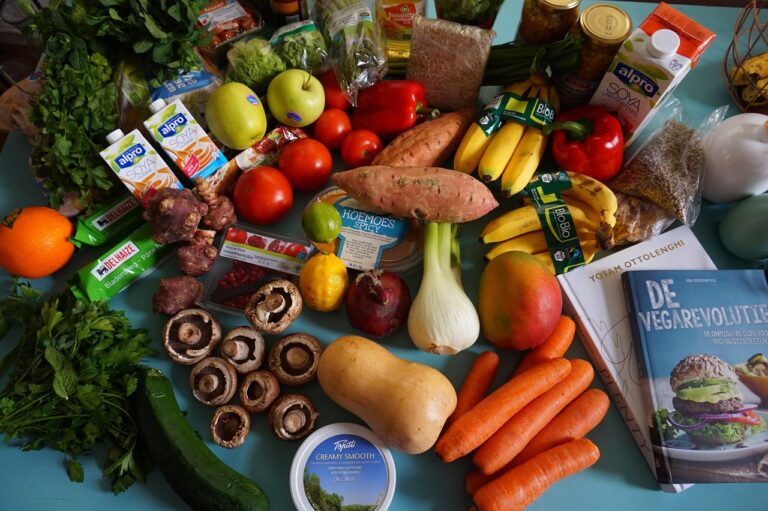The Role of Community Supported Agriculture in Promoting Health
Community Supported Agriculture (CSA) programs offer a direct link between consumers and local farmers. By participating in a CSA, individuals can develop a deeper understanding and appreciation for where their food comes from. This connection fosters a sense of community and transparency in the food system, creating a more sustainable relationship between producers and consumers.
Moreover, CSA shares typically consist of a variety of freshly harvested produce, providing members with access to a diverse range of nutrient-dense fruits and vegetables. This abundance of fresh, seasonal produce encourages individuals to explore new recipes and culinary experiences, ultimately promoting a healthier and more plant-based diet. Additionally, the proximity of the food source in CSA programs often means that the produce is harvested at the peak of ripeness, maximizing both flavor and nutritional content.
Supporting Local Farmers and Economy
Local farmers play a vital role in sustaining the economy of a community. By purchasing produce directly from these farmers through Community Supported Agriculture (CSA) programs, individuals can contribute to the growth of their local economy. This direct support enables farmers to reinvest in their operations, purchase necessary equipment, and hire additional workers, ultimately fostering economic development within the community.
In addition to boosting the local economy, supporting local farmers through CSA programs helps to preserve farmland and promote sustainable agricultural practices. By choosing to buy produce locally, consumers help reduce the need for large-scale industrial farming, which typically leads to environmental degradation. Instead, supporting local farmers encourages the use of environmentally friendly farming methods that prioritize soil health, water conservation, and biodiversity, ensuring a more sustainable future for both the community and the environment.
Access to Fresh, Nutrient-Dense Produce
One of the key advantages of participating in a Community Supported Agriculture (CSA) program is the direct access to an abundance of fresh, nutrient-dense produce. By engaging in a CSA, individuals have the opportunity to receive a variety of fruits and vegetables that are typically harvested at their peak ripeness, ensuring optimal flavor and nutritional value. This direct relationship with local farmers allows for a more immediate connection to the origin of the food, fostering a greater appreciation for the journey from farm to table.
Moreover, the proximity of the produce to the consumer in a CSA often means that the fruits and vegetables are allowed to ripen fully on the vine or tree, developing a richer taste and higher nutrient content. With traditional grocery store produce, items are often picked before they are fully ripe in order to withstand transportation and shelf life, which can compromise taste and nutritional value. By supporting local farms through a CSA, individuals can enjoy a flavorful array of fresh produce that is not only delicious but also packed with essential vitamins, minerals, and antioxidants.
Participating in a CSA provides direct access to fresh, nutrient-dense produce
Produce is typically harvested at peak ripeness for optimal flavor and nutrition
Direct relationship with local farmers fosters appreciation for farm-to-table journey
Proximity of produce to consumer allows for full ripening on vine or tree, enhancing taste and nutrients
Supporting local farms through a CSA ensures flavorful array of fresh produce packed with essential vitamins, minerals, and antioxidants
What is Community Supported Agriculture (CSA)?
Community Supported Agriculture (CSA) is a system that connects consumers directly with local farmers. Consumers can purchase a share of the farm’s produce in advance, providing the farmer with financial support and the consumer with fresh, locally grown food.
What are some benefits of participating in a CSA?
Some benefits of participating in a CSA include access to fresh, seasonal produce, supporting local farmers and the economy, and fostering a sense of community around food.
How does supporting local farmers benefit the community?
Supporting local farmers helps to strengthen the local economy, preserve farmland, and reduce the environmental impact of food transportation. It also promotes sustainable farming practices and helps to create a more resilient food system.
How can access to fresh, nutrient-dense produce improve overall health?
Consuming fresh, nutrient-dense produce is essential for maintaining good health. These foods are rich in vitamins, minerals, and antioxidants that support overall well-being and can help prevent chronic diseases. Access to such produce through initiatives like CSA programs can encourage healthier eating habits.
How can individuals get involved in Community Supported Agriculture?
Individuals can get involved in Community Supported Agriculture by researching local CSA programs in their area, signing up for a share, and actively participating in the farm’s activities. By supporting local farmers and accessing fresh, nutrient-dense produce, individuals can contribute to a more sustainable food system.







